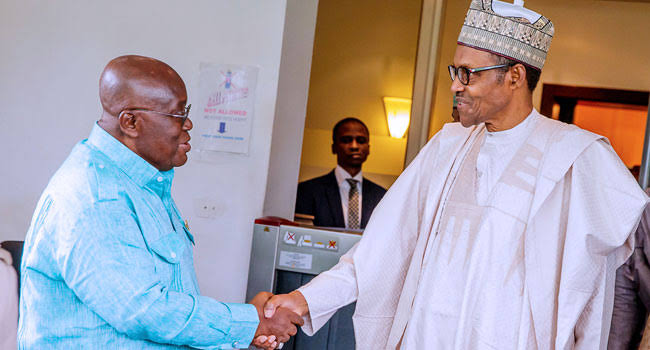New World Bank report paints a grim picture of Nigeria
A new world bank report seen by the media has painted a very grim picture of the economy today and in the future. According to the World Bank, Nigeria is facing “potentially the most severe downturn in four decades…even if the outbreak is contained”.
The report was included in a webinar presentation “ALIPA Webinar” dated August 27, 2020.
According to the World Bank, the double whammy of the oil price fall, and the COVID-19 pandemic has put Nigeria on the path to economic ruin and may not get out of it quickly if significant policy changes are not made. The report pointed out that the Oil Price Collapse is Destabilizing the economy and affecting fiscal and external balances, and growth.
It also lamented that the Covid-19 Pandemic is reducing foreign remittances and adding to the households’ loss of income and consumption. It also exclaimed that foreign capital inflows are also expected to decline adding to external payment pressures.
With all these grim predictions it projects a GDP contraction of -3% for 2020 “possibly triggering the worst recession in four decades.” The National Bureau of Statistics on Monday reported the Nigerian economy contracted by 6.1% in the second quarter of the year due to the Covid-19 pandemic and the crash in oil prices.
The fallout of an Economic Contraction
Jobs, already scarce from the 2016 recession, will be that much harder to find
Many Nigerians are expected to fall into poverty as incomes fall while the population continues to rise
Women and workers in the informal sector are likely to be more affected
The presentation also suggested what Nigeria must do to get out of the woods.
Containing the COVID-19 outbreak and preparing for a more severe outbreak.
Enhancing macroeconomic management to boost investor confidence
Safeguarding and mobilizing revenues
Reprioritizing public spending to protect critical development expenditures
Supporting economic activity and providing relief for poor and vulnerable communities
Key Policy changes for Nigeria proposed
The World Bank also outlined suggestions for Nigeria’s foreign exchange management as well as some of its economic policies
Unify exchange rates into a single window, and increase exchange rate flexibility now, before foreign exchange reserves are further depleted and pressures mount for a much larger and disruptive devaluation that would hurt the poor
Ease foreign exchange restrictions to limit inflationary pressures and increase supply of food and key staples (e.g., health-related products).
Refocus management of monetary policy toward the primary objective of price stability
Phase-out land border closures to limit inflation and direct private sector development to more competitive ends
Continue making management of public debt more transparent
Review prudential requirements related to bank sales of non-performing loans to AMCON and similar companies to transparently streamline the process for efficient resolution of nonperforming loans





